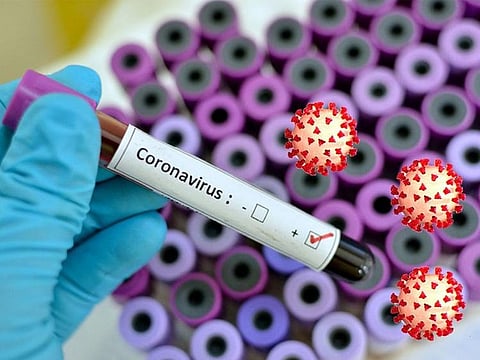UAE: Khalifa University research team develops portable, cheap PCR test to help detect COVID-19 in 45 minutes
No need for any sophisticated equipment for this test either

Abu Dhabi: A team of researchers from Khalifa University has developed a portable COVID-19 testing kit, no larger than your average smartphone. The new kit is both portable and can deliver the results in 45 minutes only.
Dr. Anas Alazzam, Associate Professor of Mechanical Engineering and member of the System on Chip Center, SOCC, is the primary investigator for the project with Dr. Habiba AlSafar, Director of the Khalifa University Center for Biotechnology and Associate Professor of Genetics and Molecular Biology, as co-principal investigator. The research team includes the Postdoctoral Researchers Dr. Waqas Waheed and Dr. Sueda Saylan, along with Research Associate Hussein Kannout.
While PCR testing is always highly accurate, and the gold standard for detecting viruses, it can be complex to use. The researchers at KU used the Loop-mediated Isothermal Amplification method, LAMP, to provide a rapid, sensitive, and specific detection of the COVID-19 virus. It is faster than the conventional PCR method and uses primers that target two specific regions of the viral RNA. The majority of PCR methods rely on thermal cycling where the reactants are exposed to repeated cycles of heating and cooling to start the RNA replication process. While laboratory PCR tests require a programmable thermocycler, LAMP can be carried out with a simple heat block, making it much more amenable to portable testing.
As complicated as this sounds, it’s all completed within the device and needs minimal knowledge to operate. For the KU testing kit, there is no need for any sophisticated equipment as the kit performs COVID-19 detection directly from a patient’s swab. A simple color change shows the result: pink for negative, yellow for positive.
Currently in the clinical validation stage, this testing kit can detect active infections in 45 minutes, meaning it can be used in rapid testing while being cost-effective at the same time.
When the coronavirus pandemic is over, the kits remain useful, as they can be used with any virus detecting primer. The LAMP method will still replicate the RNA to make it testable and then the sample can be tested with a reagent looking for the influenza virus, for example.
Primers to detect an infectious agent can be produced quickly once the viral sequence is known, so if a new virus were to emerge, this PCR test from the team at Khalifa University would be able to detect it.
Sign up for the Daily Briefing
Get the latest news and updates straight to your inbox



